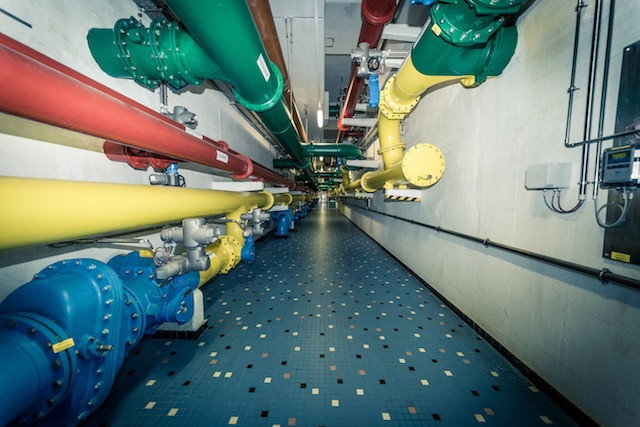There are two main pipeline routes leading from the complex, which is located between Grevenmacher and Mertert, the agriculture and economy ministries said at a joint press conference held Friday at 5pm.
The first will transport wine around 250km to Belgium, one of the largest export markets for Luxembourg vintages, with its terminus near Brussels. A 169km branch will carry mainly red wine from there to the port of Rotterdam, in the Netherlands, where it will be loaded onto tankers for shipment to China.
A second line, altogether 280km, runs to Koblenz and then Köln, to serve the important German market.
Construction cost approximately €500,000 per kilometre, bringing the total cost of the project to roughly €349.5m, said Vinomosella’s executive director, Edwina de la Fontaine.
Funding was provided by three consortia:
- 43% from a coalition of the Moselle Winegrowers Association, Moselle Winemakers Federation and Union of Independent Luxembourg Moselle Viticulturists
- 7% by a syndicate made up of the Central Moselle Tourist Office, Northern Moselle Region Tourist Authority and Lower Luxembourg Moselle Tourism Promotion Agency
- 50% co-financing from Luxembourg’s Rural Improvement Fund and the European Commission
Bulk sales will not tarnish the country’s hard-earned reputation for wine, insisted Marco Schmit from Luxembourg’s agriculture ministry. “The timing is right to seize market share.”
The pipeline is expected carry between 500,000 and 1m hectolitres of wine exports annually, said Stephen Taylor of Luxembourg’s economy ministry. Carriage charges are expected to pay off the cost of building the system by 1 April 2067.
